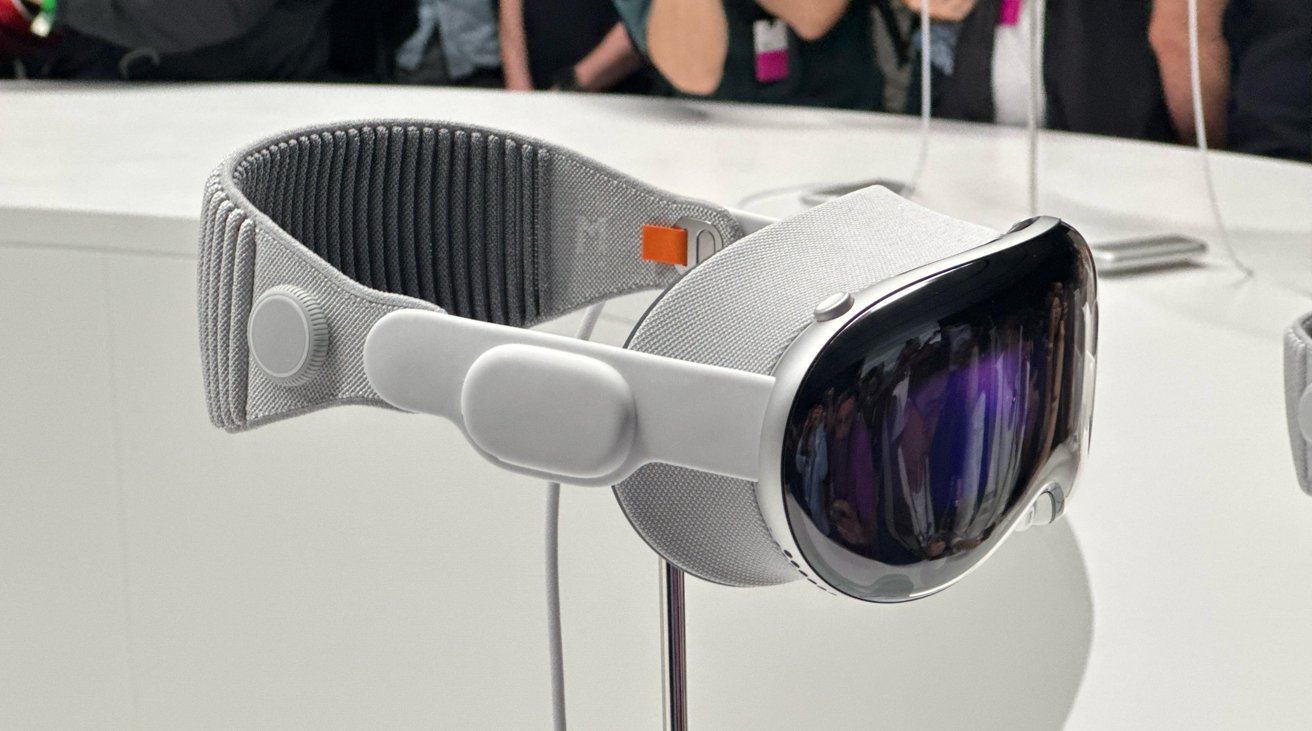Apple considered VR controllers & rings for Vision Pro, but didn't like the ideas
Early in the Apple Vision Pro development cycle, the company toyed with bespoke VR controllers for the headset, but ultimately decided that eye and finger tracking with cameras was the way to go.

Apple Vision Pro
At some point in early development, Apple reportedly company considered a device like a smart ring to control the Apple Vision Pro. According to the latest newsletter from Mark Gurman, the company also reportedly tested third-party VR controllers from HTC at least.
And, it apparently has no intention of developing a VR controller for itself. Apple's distaste for this kind of controller also extends to lack of support for third party controllers -- at least for now.
But, it works with game controllers from Microsoft and Sony that are intended for consoles. Apple's macOS and iOS support a wide array of controllers as it stands now, and it's not clear if this range will work on Vision Pro.
Apple has an in-air keyboard for the Vision Pro, of course. The headset will also support a Bluetooth one, or one connected to a Mac.
Apple's work on a "smart ring" may have been a predecessor to Apple Vision Pro
The company has been working on technology surrounding a smart ring for some time. Apple has been researching smart rings plus accessories for it.
Most recently, a newly-granted patent, "Skin-To-Skin Contact Detection," covers multiple ways of detecting "contact or movement gestures between a first body part and a second body part" like snapping fingers, or gestures that were covered in the WWDC keynote that revealed the Apple Vision Pro. That includes options that seem more relevant to Apple Watch bands, or even just a person's hands interlocking, but it comes down to both skin and gesture detection.
One of the example illustrations shows how a person's hand position changes when they press their finger and thumb together, for instance. A second illustration shows when "the index finger is now making contact with the thumb."
Apple's proposed system for that smart ring, and likely the Apple Vision Pro too, will recognize the touch, and also generate "a sense output signal when the index finger and thumb make and break contact."
Other examples of Apple's research on gesture detection show a user pressing a finger of one hand into the palm of the other, which in theory doesn't necessitate a physical controller.
Read on AppleInsider

Comments
Camera and IR frame rates would have to go up to 400 to 500 Hz. So, probably a doubling to tripling from where the VP is at now. It isn't going to be cheap computationally or power efficient, but I would definitely prefer them to push hand and eye tracking to the point below human perception. It would benefit all applications, not just games.
Think about sound-activated switches, sip-and-puff switches, proximity and capacitance switches (you may have used one the last time you got on an elevator), voice-powered switches, and coming up, EEG switches. The interesting thing here is that *any* single switch can be linked to any device through a universal port (there’s at least one on the device that you’re using to read this right now). Apple in particular has added dozens of accessibility and switching features to its standard iOS and OS systems. Adding that capacity to the Vision Pro should be a cinch.
The Star Raft Project
I would expect the vast majority of current fast twitch gamers are going to insist on either a controller or keyboard/mouse. The advantage of such is that there is no uncertainty at all as to which control is being pressed, even if one's hand might be in a slightly different position. I'm not sure hand tracking will have that kind of precision and lack of uncertainty anytime soon. I do think it's a solvable problem, but the current generation of gamers isn't going to want to throw away all the work they've put into developing muscle memory, especially since Apple is still showing only lukewarm interest in any kind of high end, fast twitch games. Of course, based on some numbers I saw recently, the mobile game market is larger than all the console markets put together, so I'm not sure they really need "high end" games.